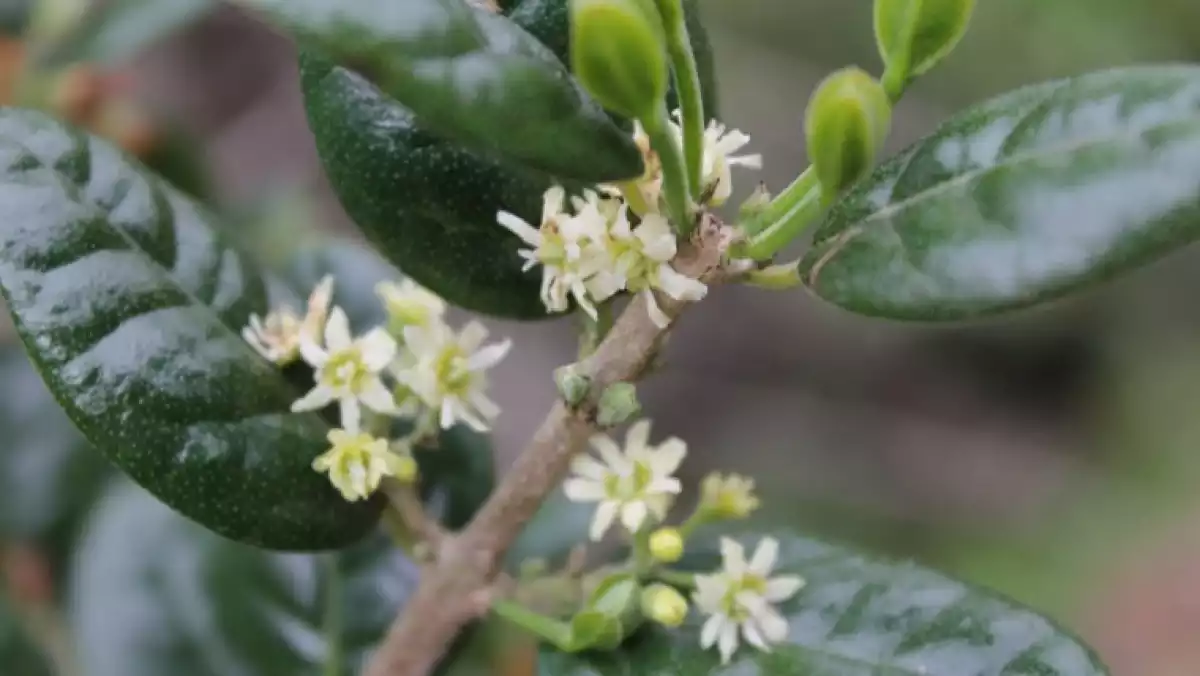
Boldo is a plant native to Chile that's used as a traditional natural remedy because of its benefits for the liver, relaxing effects, and digestive properties. Boldo tea, specifically, acts as a potent medicinal herb.
In this article, we take a look at what boldo is, its uses, and medicinal properties and the benefits of consuming this plant, as well as its main contraindications.
What is boldo?
Boldo, also known by the scientific name Peumus boldus, is native to southern Chile located on the South American continent. This is the only species that belongs to the Peumus genus and it is a part of the monimiaceae family.
The boldo plant is a tree with highly aromatic leaves used for both their medicinal and culinary properties, especially in South and Central America. This tree forms a part of the vegetation found in southern and central Chile, specifically in the southern part of the Coquimbo region.
This tree grows in moist environments with constant light, reaching up to 15 m in height, although it develops very slowly. On the same note, the boldo plant blooms in August and September, presenting beautiful little white blossoms in groups of 12. This Chilean plant bears drupe fruits, in other words, fleshy fruits with pits. These are sweet and yellow-green in color.
Lastly, regarding its origins, the leaves of this tree have been consumed for medicinal properties for over 14,000 years. After this, it was slowly introduced to Europe and Africa.
The benefits of this plant often come from its fruit which you can eat either raw or cooked. Likewise, the leaves of this tree are commonly used to make boldo tea to treat certain afflictions, and particularly those related to the liver. It usually grows in temperate regions, mostly in Chile, but it is also found in Argentina and Peru.
Boldo tea benefits
Regarding its properties, this medicinal plant is rich in essential oils like cineol, eucalyptol, and ascaridole. Boldo also contains high levels of flavonoids and tannins.
These elements have therapeutic benefits including its effects as a sedative and calming agent and as an expectorant. Besides, it works against inflammation and is a carminative which helps to reduce swelling and gasses in the digestive tract.
Cineol is an essential oil which gives this plant a lemony scent. As we mentioned before, flavonoids are substances that reduce the risk of experiencing heart problems and tannins also work as antioxidants in the body. Besides, other organic compounds called alkaloids make boldo a natural diuretic.
All of this helps to eliminate liquids from the body naturally and therefore takes care of the liver, as well as aiding in bile production and expulsion.
Related: Eucalyptus: 6 Impressive Properties And Benefits
Boldo tea
An infusion made from boldo leaves helps to treat gastrointestinal pathologies like: flatulence, gastritis, stomach ulcers, indigestion, and dyspepsia. Besides, it also has therapeutic effects on the liver and the urinary tract since it prevents nephritis, syphilis, and urethritis. Boldo tea is also an effective remedy to combat headaches and joint pain caused by gout.
To make this tea, you'll need to buy this plant's leaves at a health food shop -they can be dried or fresh. All you need is a tablespoon of these leaves and boiling water. Throw them into a saucepan with boiling water and let them sit for 10-12 minutes. For the best results, drink this infusion while it's hot before and after meals.
Related: Gout Diet: High Purine Foods To Avoid

Boldo plant as a natural medicine
Keeping all of the properties and benefits of boldo in mind, besides its culinary uses, it's mainly used as a natural medicine. Here are some of boldo's main therapeutic uses.
1. A relaxing sedative
Boldo tea can prevent mild insomnia by favoring natural sleep. Besides, it works as an anesthetic and pain reliever to treat earaches, stomachaches, or even a cough. Syrup extracted from its leaves can also help with rheumatic and liver afflictions.
2. Digestive stimulant
This medicinal plant works to activate the digestive apparatus as a whole which helps to prevent indigestion and other intestinal issues. Besides, it combats gas and gets rid of abdominal bloating.
3. Natural diuretic
This plant is a potent diuretic that stimulates and eliminates accumulated liquid, especially when consumed as a tea and it can also help to treat genitourinary diseases. Besides, it prevents stone formation in the gallbladder, cleanses the blood, and favors toxin excretion.
4. Pain reliever and antiseptic agent
On the other hand, hot baths with a boldo poultice could help to treat syphilis, migraines, headaches, and rheumatism. Used topically, this plant can work to cure wounds and sores.
5. Hepatoprotective agent
Boldine is an element that works to protect the liver by stimulating bile secretion -consumed in tea form. An infusion made from this plant can help to detoxify the liver if someone drinks too much alcohol, for example.
6. Common cold remedy
Thanks to boldo's expectorant properties combined with other medicinal herbs like melissa or cilantro, it can help to combat cold or flu symptoms such as coughing, excess mucus in the airways, or general discomfort.
Related: Lemon Balm (Melissa Officinalis): Uses And Benefits

Chilean boldo contraindications
In spite of all of boldo's benefits, it is contraindicated for pregnant women since it can cause uterine contractions which could lead to abortion, as well as teratogenic effects on the fetus. You should also avoid consuming this plant during lactation, and children under 12 years of age shouldn't drink this tea either. People with bile duct inflammation, acute hepatitis, or pancreatitis, should also avoid boldo tea.
Consuming too much of this medicinal herb even if you aren't on this list, could cause the following side-effects:
Diarrhea
Abdominal pain
Nervous system issues
Vomiting
Discomfort
Stomach problems
You should not consume this Chilean plant for extended periods, generally speaking, 4 weeks is the maximum treatment length recommended. Some properties of boldo that seem beneficial at first like its carminative effects can make it a laxative, especially in those that are prone to diarrhea.
Even though it has benefits for the biliary system -specifically managing problems caused by stones, it could obstruct the bile ducts during the expulsion process. People with liver problems and kidney disease should avoid consuming boldo. When consumed in excess, this plant can even cause seizures.
As far as interactions with other medications, boldo could cause problems for those who take blood thinners. The coumarin that it contains is a natural blood thinner, which is why it could increase the risk of internal bleeding even more. That's why you should talk to a doctor before deciding to consume this plant and follow his or her recommendations.
Check out the original article: Boldo: para qué sirve, propiedades, beneficios y contraindicaciones at viviendolasalud.com
References
Committee on Herbal Medicinal Products (HMPC) (2009). Peumus boldus, European Medicines Agency, 1-15. Available at https://www.ema.europa.eu/documents/herbal-report/superseded-assessment-report-peumus-boldus-molina-folium_en.pdf
